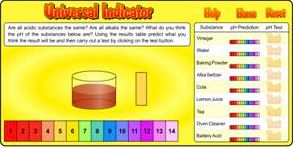Science and EAL
Developing EAL in science

EAL development is clearly about learning and using English, but it is important to note that learning English as an additional language is not the same thing as learning English as a mother tongue. Mother tongue English-speaking pupils join school with a more or less developed (age-appropriate) capacity to use the spoken language and with a working knowledge of local culture. Pupils learning EAL may be at various stages of learning English and their spoken and written English may be at different points of development; they may be unfamiliar with local cultural norms and expectations.
Pupils learning EAL will include:
- New arrivals with little or no previous educational experience
- Pupils who are acquiring English with limited exposure to formal education in their first language
- More advanced bilingual learners including pupils with a number of years’ exposure to English whose specific language learning needs have been overlooked
- Pupils who arrive from overseas with good educational backgrounds but who have varying levels of proficiency in English, and who need to catch-up quickly
The resources on this page provide pointers which teachers may find helpful as they develop their practice. The resources cover issues such as: vocabulary development; key visuals; reading and writing strategies; and the use of first languages.